finding the top portable storage container companies
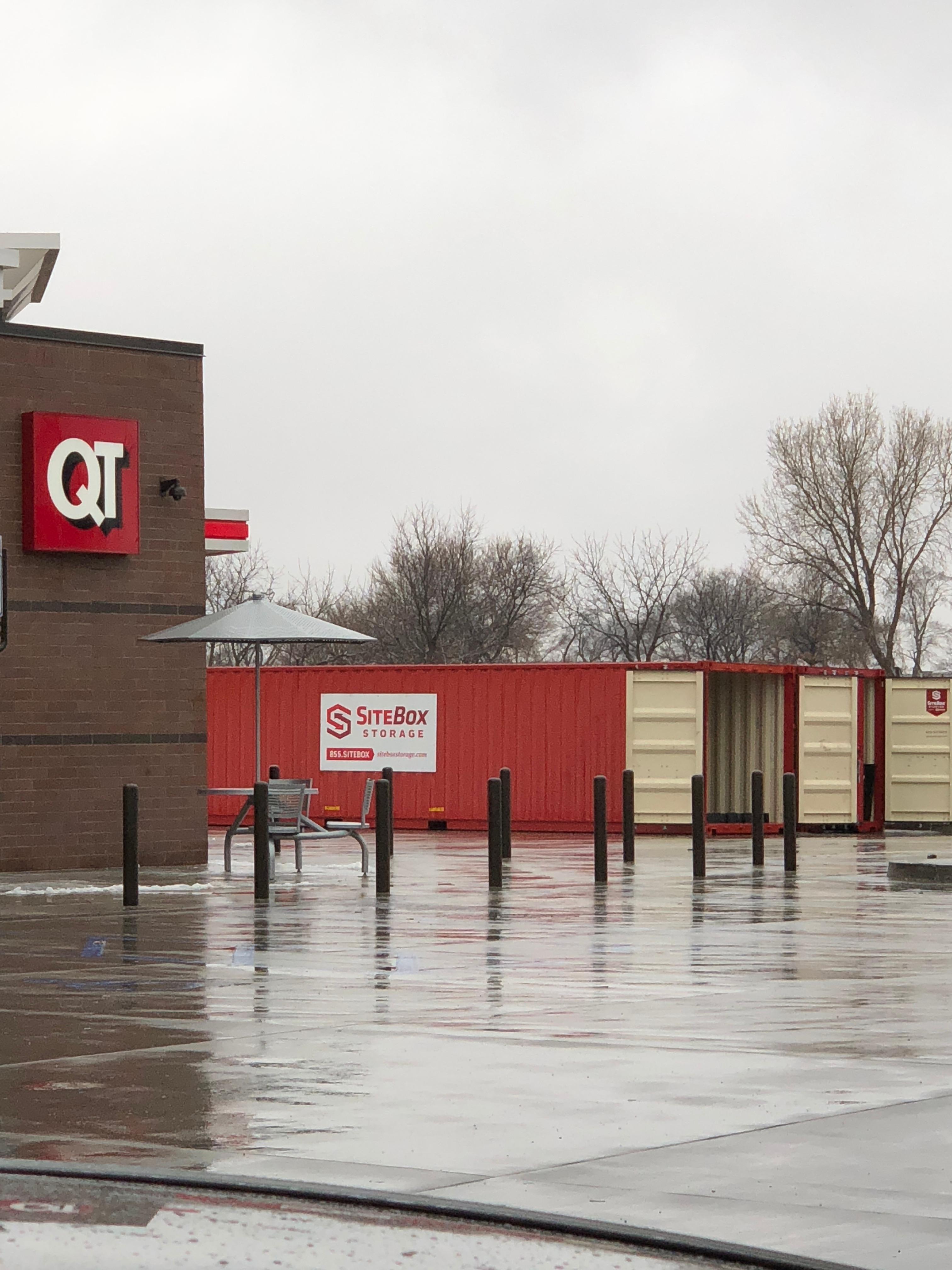
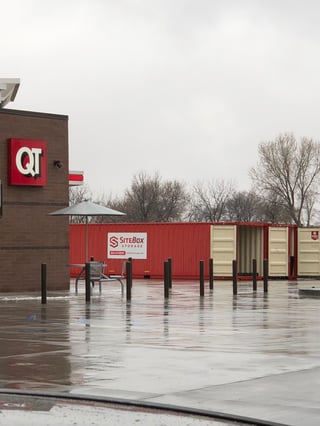
Shopping for portable storage containers shouldn't feel like wandering through a maze. But when you're staring at dozens of company names promising the best service, lowest prices, and fastest delivery, yeah, it gets confusing.
Not all storage container companies operate the same way. Some focus on homeowners moving. Others specialize in construction sites. A few excel at mobile offices. Understanding these differences saves you from choosing a company that looks great on paper but fumbles when delivering what you need.
The portable storage container market grew by 12.7% in 2024, with approximately 4,200 companies now operating across North America. That's a lot of competition, which benefits you if you know what questions to ask. Let's break down everything you need to make a smart choice.
Types of Portable Storage Containers
Different containers serve different purposes. Understanding options prevents mismatches.
Standard steel cargo containers dominate the market. Durable steel construction, weather-resistant, lockable doors following ISO specifications. Perfect for general storage and job sites.
High cube containers add extra ceiling height, about 9.5 feet versus standard 8 feet. Great for tall items or vertical stacking.
Climate-controlled containers maintain temperature and humidity. Less common but crucial for sensitive items. Expect premium pricing.
Modified containers come preconfigured as mobile offices, workshops, or combo units with built-in features.
Portable moving containers designed specifically for residential moves. Usually smaller with easier loading access. Companies like PODS built their business around these.
The variety lets you match container type to your exact situation.
Benefits of Using Portable Storage Containers
Why choose portable containers over traditional storage or rental trucks?
Convenience tops the list. The container comes to you, load it in your driveway, parking lot, job site. No driving to facilities across town. About 68.4% of homeowners use portable containers during moves or renovations because of this convenience.
Flexibility around timing. Load over days or weeks at your pace. The average rental duration runs 42.6 days, giving breathing room other solutions can't match.
Security and weather protection. Steel construction keeps contents safe from weather, pests, theft. Your belongings stay in a lockable container you control.
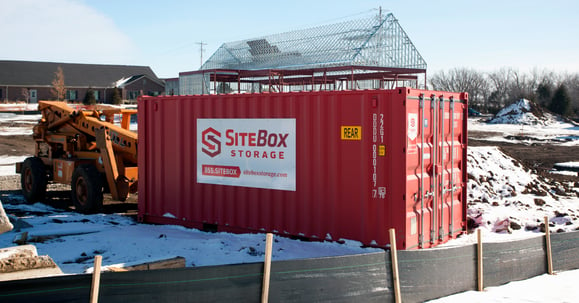
Cost efficiency. For short moves or quick storage, portable containers often cost less than combining rental trucks with traditional facilities.
On-site access. Need something you packed? Walk out and grab it. No facility trips, access hours, or gate codes.
Popular Storage Container Companies
The market includes national chains and regional specialists.
SiteBox Storage operates across Nebraska, Kansas, Missouri, North Carolina, Oklahoma, South Carolina, and Texas. Since 1998, they've focused on construction, industrial, retail, and commercial clients. Their fleet includes standard containers, mobile offices, and combo units. Customer service gets high marks, easier local communication and reliable delivery schedules.
Mobile Mini runs large national operations with solid product range including mobile offices. They serve similar markets with different service philosophies.
PODS dominates consumer moving and storage. Strong brand recognition focusing on homeowners and residential moves. Network covers most of the United States and Canada. However, they don't offer mobile offices or combo units, solutions target consumers more than businesses.
U-Pack offers portable moving containers focused on long-distance moves through their freight network.
1-800-PACK-RAT operates nationally with moving and storage solutions. Multiple sizes and climate-controlled options in some markets.
Regional specialists throughout Florida, Arizona, New Jersey, New York, Tennessee often provide better local knowledge and more responsive service than national chains.
Renting vs. Buying Storage Containers
Your timeline and budget determine the best option.
Renting works for temporary needs. Moving, renovating, short-term projects. Over 73% of companies offer both rental and purchase options. Monthly rates vary by location, size, and features, basic containers might run a few hundred monthly. The average rental duration of 42.6 days means most people rent 1-2 months.
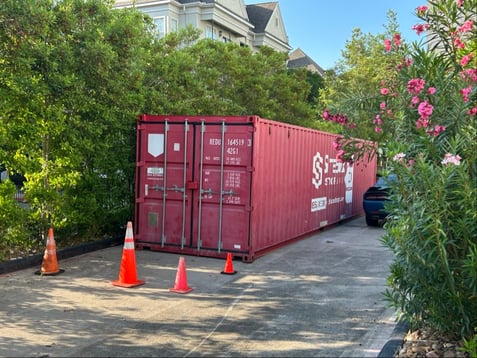
Buying makes sense long-term. If keeping containers for years, purchasing beats endless rental payments. Construction companies and businesses using containers as permanent storage typically purchase. Used containers start around a few thousand, new containers with modifications can reach $20,000+.
Lease-to-own bridges the gap. Some companies apply rental payments toward purchase, providing flexibility while building equity.
Calculate your breakeven. If renting costs $300 monthly and buying costs $5,000, you break even after about 17 months.
Sizes and Capacity Options
Container sizes follow standard patterns, though availability varies.
8-10 foot containers work for minimal storage, small apartments, seasonal items, small crew tools. Limited availability.
20 foot containers represent the sweet spot. Enough capacity for 2-3 bedroom homes, decent inventory storage, mid-sized crews. Widely available.
40 foot containers handle entire households, large business inventory, major operations. Maximum capacity but require significant placement space.

High cube versions add vertical space, same footprint, more interior volume.
People consistently underestimate space needs. Go slightly larger than you think. Loading becomes a nightmare when cramming everything into too-small containers.
Most companies list interior dimensions online. Measure your larger items to estimate space realistically.
Delivery and Pickup Services
How containers get to your property matters more than you'd think.
Most companies include delivery in pricing or charge separate fees. Distance affects cost, ask about delivery charges upfront.
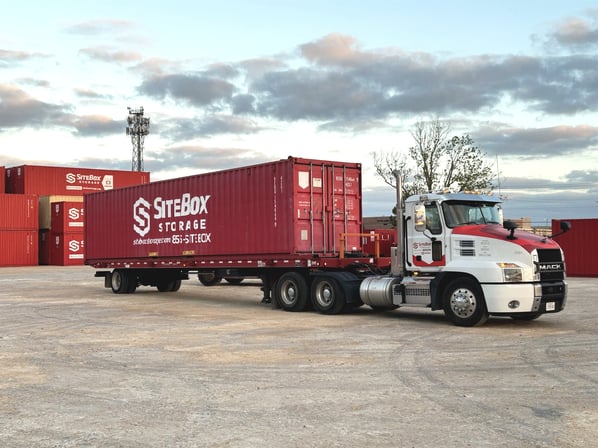
Site requirements determine success. You need level ground, adequate space for container plus truck maneuvering, clear overhead access. Trees, power lines, overhangs, all potential obstacles.
Companies use tilt-bed trucks or cranes. Tilt-beds work for ground-level placement with good truck access. Cranes handle tighter spots.
Scheduling flexibility varies. Some book weeks out. Others accommodate rush deliveries. During peak season (spring through early fall), availability tightens. Book early.
Pickup scheduling causes frustrations when companies don't respond promptly. Ask about typical timeframes before committing. Read reviews mentioning pickup responsiveness.
Pricing and Cost Comparison
Prices vary significantly. Understanding cost drivers helps you compare quotes accurately.
Base rental rates depend on size, duration, and local competition. Monthly rates for standard 20-foot containers might run $150-400. Forty-footers and modified units cost more.
Delivery and pickup fees add $50-200+ each way depending on distance and site difficulty.
Damage deposits sometimes apply. Ask about damage policies upfront.
Long-term discounts often available. Renting 6-12 months? Ask about reduced monthly rates.
Purchase pricing starts around $2,000-3,000 for used containers. New containers run $4,000-6,000. Modified containers with offices and features can reach $15,000-25,000.
Get quotes from multiple companies. Compare total costs including all fees, not just advertised base rates.
The approximately 4,200 companies operating in North America means you can usually find rates fitting your budget.
Security Features of Storage Containers
Security matters whether storing household possessions or expensive equipment.
Steel construction provides the foundation. Heavy-gauge steel walls resist break-in attempts. You're not dealing with wooden sheds somebody can crowbar open easily.
Lockable doors come standard. Most use heavy-duty locking bars. Add your own quality padlock, cheap locks get cut easily. Invest in hardened steel or disc locks.

Lockboxes provide additional security, covering your padlock to prevent bolt cutter access.
Limited access points help. Unlike warehouses with multiple doors, containers typically have one entry point you control.
Weather resistance protects against water damage but also makes forced entry harder.
Some customers add motion lights, cameras, or alarm systems for high-value contents. Choose quality locks, inspect container condition, ask about security options.
Customer Reviews and Ratings
Reviews reveal how companies handle problems and whether promises match reality.
Look for patterns, not individual complaints. Every company gets occasional bad reviews. Focus on recurring themes—late deliveries, difficult communication, damaged containers, hidden fees.
Delivery and pickup timeliness appears frequently. Did containers arrive when promised? Did pickups happen promptly?
Container condition matters. Reviews mentioning clean, well-maintained units signal companies caring for equipment.
Customer service responsiveness separates good from mediocre. Can you reach someone when needed? Do they solve problems?
Hidden fees spark angry reviews. Transparent pricing upfront prevents surprises.
Check Google reviews, Yelp, BBB ratings. Ask companies for references.
The 12.7% market growth in 2024 means lots of new companies. Established operations with consistent review histories provide more reliability.
Tips for Choosing the Right Storage Container Company
Making smart choices requires asking the right questions.
Verify coverage area first. Confirm they deliver to your specific property before committing.
Clarify what's included. Delivery? Pickup? Locks? Get complete pricing with all fees listed.
Ask about container condition. New? Used? Photos help but don't tell everything. Can you inspect before accepting?
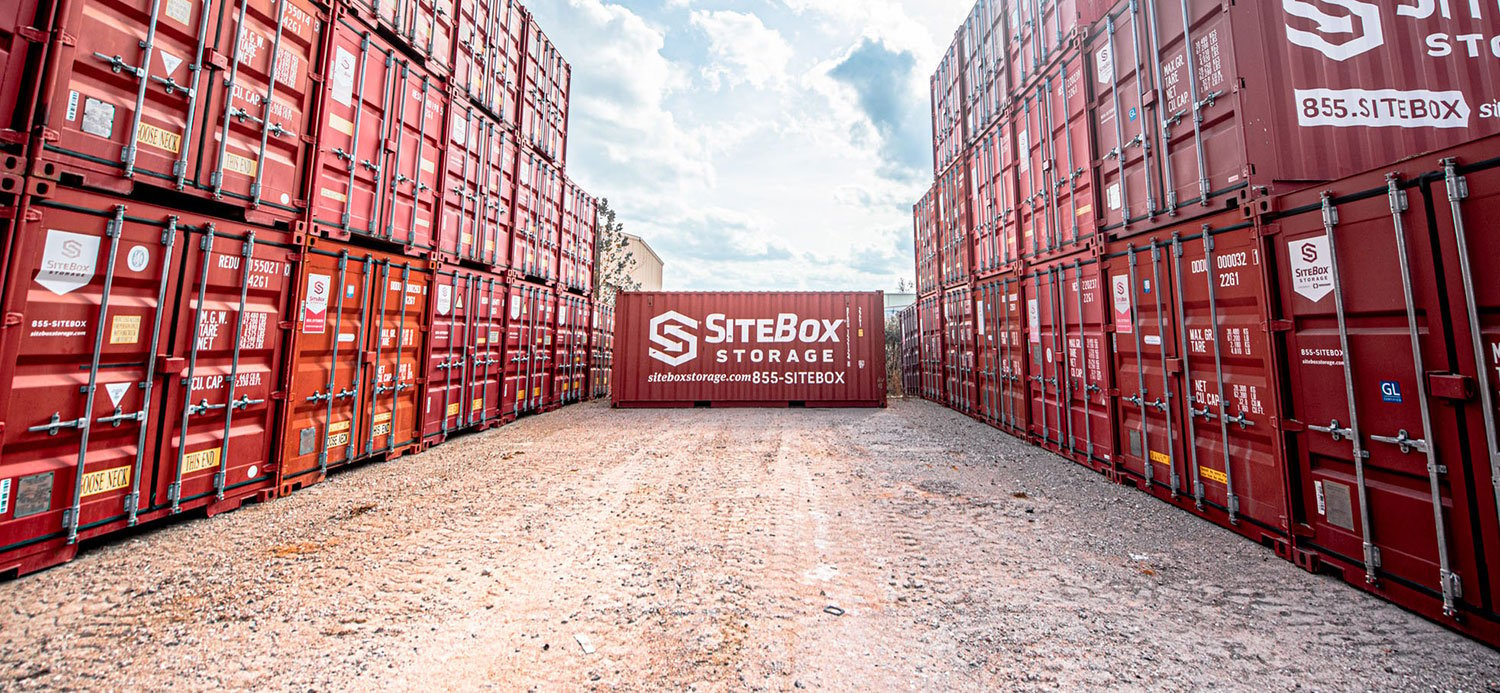
Understand availability. How quickly can they deliver? What if you need it longer than planned?
Check cancellation policies. Life happens. Plans change. What flexibility exists?
Discuss site requirements honestly. Access issues? Hills? Overhead lines? Let them assess feasibility.
Compare based on your needs. Consumer-focused company might be perfect for residential moves but terrible for construction storage.
Get quotes from at least three companies. Compare costs, service levels, reviews, responsiveness. How companies treat you before getting your money predicts how they'll treat you after.
Types of Uses for Portable Storage Containers
Understanding common uses helps identify whether containers fit your situation.
Residential moving accounts for huge portions of rentals. Load your stuff, have it transported, unload at your pace. Way less stressful than one-day moving marathons.
Home renovations create chaos. Portable containers park in your driveway keeping belongings protected but accessible.
Construction and job sites rely on containers for equipment storage, tool security, mobile offices.
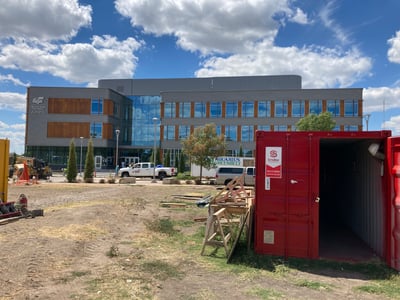
Business inventory overflow during seasonal spikes or warehouse expansions provides temporary capacity without real estate commitments.
Retail transitions during relocations or remodels keep inventory accessible.
Event storage for festivals, fairs, seasonal operations. Store equipment securely between events.
Emergency response situations where temporary storage deploys quickly.
The flexibility explains strong growth, containers adapt to almost any situation requiring storage.
Portable Storage vs. Traditional Storage Facilities
How do portable containers stack up against facilities?
Convenience heavily favors portable containers. Load once in your driveway versus multiple facility trips. Access anytime without driving.
Cost comparison varies. Short-term moves often favor portable containers. Long-term storage might favor facilities. Calculate total costs honestly.
Security depends on specifics. Facilities offer surveillance and security staff. Containers rely on your property security plus construction and locks. Neither is automatically superior.
Climate control availability favors facilities. Most offer climate-controlled units. Climate-controlled containers exist but cost more and aren't universally available.
Flexibility swings toward portable containers. Keep them as long as needed, load on your schedule, no facility access hours.
About 68.4% of homeowners choose portable containers during moves or renovations, suggesting convenience outweighs facility advantages for temporary residential needs.
Frequently Asked Questions
What is a portable storage container?
Portable storage containers are steel structures for temporary or long-term storage. They're delivered to your location, you load them, then they stay on-site or get transported elsewhere. Common sizes range from 8 to 40 feet. Popular for moving, renovations, job sites, and business inventory.
Which companies offer portable storage containers?
Approximately 4,200 companies operate across North America. Major providers include PODS, Mobile Mini, 1-800-PACK-RAT, and U-Pack. Regional specialists like SiteBox Storage serve specific areas. Over 73% offer both rental and purchase options. Coverage varies—check which serve your area.
How much does renting a portable storage container cost?
Basic 20-foot containers run $150-400 monthly. Larger or modified units cost more. Add delivery fees ($50-200+ each way), potential deposits, and services. The average rental duration is 42.6 days. Get quotes from multiple companies comparing total costs with all fees.
Can I buy a portable storage container?
Yes. Used containers start around $2,000-3,000. New standard containers run $4,000-6,000. Modified containers with offices and features reach $15,000-25,000+. Some offer lease-to-own arrangements. Buying makes sense for permanent or very long-term needs.
What sizes of storage containers are available?
Sizes range from 8 to 40 feet length, typically 8 feet wide. Ten-foot containers work for minimal storage. Twenty-foot handles 2-3 bedroom homes. Forty-foot accommodates entire households or large operations. High cube versions add extra ceiling height. Availability varies by company and region.
Do companies deliver the storage containers to my location?
Yes, delivery and pickup services are standard. Most include delivery in pricing or charge separate fees based on distance and difficulty. You need level ground, adequate space, and clear overhead access. Delivery uses tilt-bed trucks or cranes. Schedule ahead during peak seasons.
Are portable storage containers weatherproof?
Yes, weather-resistant steel construction with seals protects from rain, snow, wind, and temperature extremes. Elevated floors prevent ground water intrusion. Built to withstand ocean transport, so terrestrial weather isn't a problem. Standard containers aren't climate-controlled though interior temperatures fluctuate.
How long can I rent a storage container?
Rental duration is flexible. The average period runs 42.6 days, but you can rent short-term (days/weeks) or long-term (months/years). Monthly rentals offer better rates than daily. Long-term rentals often qualify for discounts. Discuss duration flexibility with your provider.
What security features do these containers have?
Heavy-gauge steel construction resists break-ins. Lockable doors accept heavy-duty padlocks or lockboxes preventing bolt cutter access. Limited entry points make unauthorized access difficult. Weather-resistant seals provide no prying gaps. Some accommodate motion lights, cameras, or alarms. Quality locks matter, invest in hardened steel or disc locks.
Can I use a portable storage container for moving?
Absolutely. About 68.4% of homeowners use portable containers during moves or renovations. Load at your current home over several days, have it transported to your new location, unload at your pace. Less stressful than one-day rental truck marathons. Companies offer different service models, clarify which fits your move.
Choosing the right portable storage container company comes down to matching their strengths to your specific needs. Consumer moving? Companies focusing on residential services make sense. Construction storage? Look for providers specializing in rugged equipment and mobile offices. Business inventory? Find companies offering flexible terms and quick delivery.
The market's 12.7% growth means more options than ever. Focus on providers serving your area with good reviews, transparent pricing, and responsive customer service. Get multiple quotes. Ask tough questions. The right company makes storage situations easier.
Like any good reference will do, this Storage Container Guide will tell you that the choice you make is ultimately yours. All we can do is offer advice on the questions to ask, and the considerations to make. (And though we mention other companies, we are in no way affiliated with either Mobile Mini or Pods.) When it comes to portable storage solutions in Nebraska, Kansas, Missouri, North Carolina, Oklahoma, South Carolina, and Texas, SiteBox Storage is the best choice.

